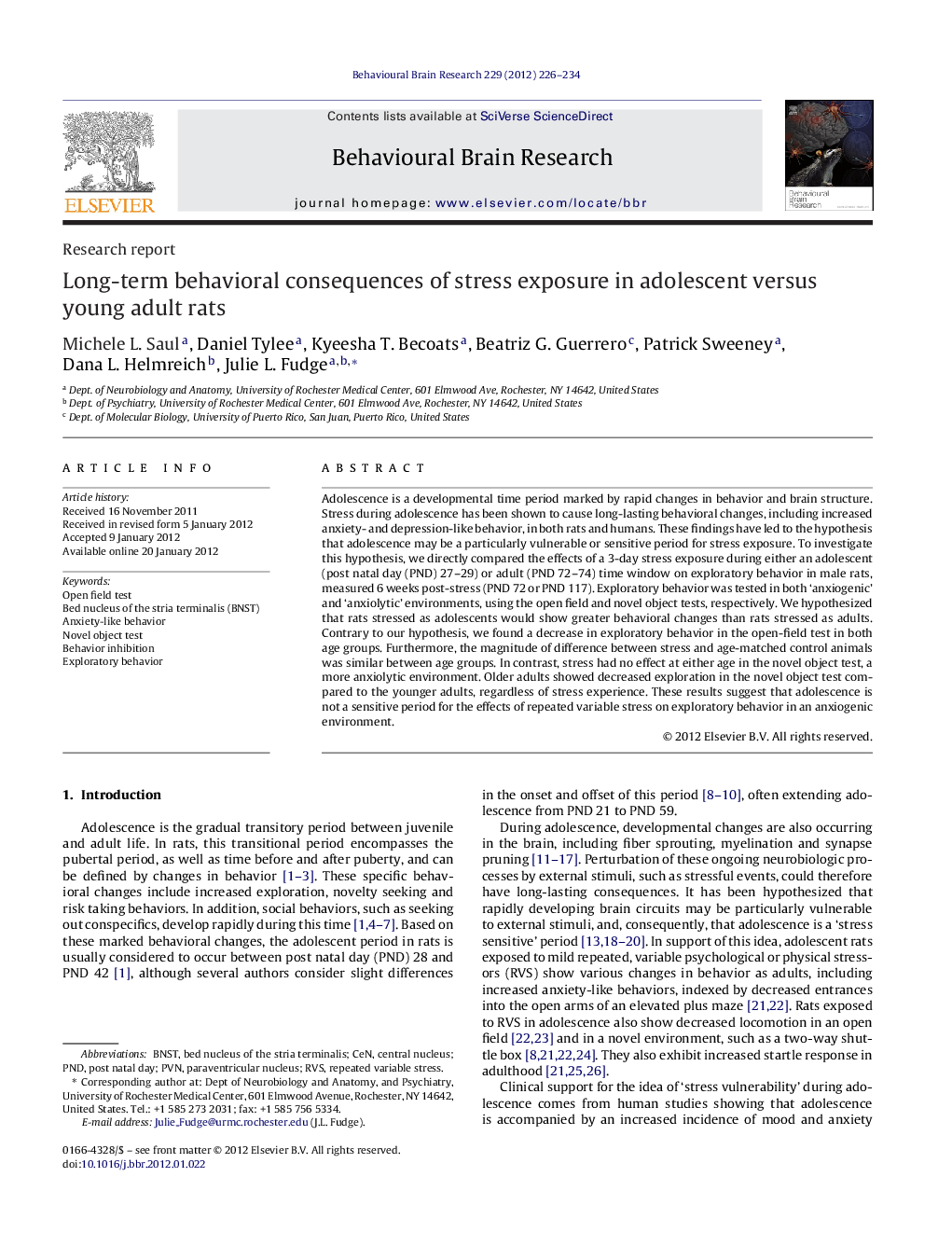| کد مقاله | کد نشریه | سال انتشار | مقاله انگلیسی | نسخه تمام متن |
|---|---|---|---|---|
| 4313366 | 1289994 | 2012 | 9 صفحه PDF | دانلود رایگان |

Adolescence is a developmental time period marked by rapid changes in behavior and brain structure. Stress during adolescence has been shown to cause long-lasting behavioral changes, including increased anxiety- and depression-like behavior, in both rats and humans. These findings have led to the hypothesis that adolescence may be a particularly vulnerable or sensitive period for stress exposure. To investigate this hypothesis, we directly compared the effects of a 3-day stress exposure during either an adolescent (post natal day (PND) 27–29) or adult (PND 72–74) time window on exploratory behavior in male rats, measured 6 weeks post-stress (PND 72 or PND 117). Exploratory behavior was tested in both ‘anxiogenic’ and ‘anxiolytic’ environments, using the open field and novel object tests, respectively. We hypothesized that rats stressed as adolescents would show greater behavioral changes than rats stressed as adults. Contrary to our hypothesis, we found a decrease in exploratory behavior in the open-field test in both age groups. Furthermore, the magnitude of difference between stress and age-matched control animals was similar between age groups. In contrast, stress had no effect at either age in the novel object test, a more anxiolytic environment. Older adults showed decreased exploration in the novel object test compared to the younger adults, regardless of stress experience. These results suggest that adolescence is not a sensitive period for the effects of repeated variable stress on exploratory behavior in an anxiogenic environment.
► In male rats, repeated variable stress reduces exploration 6 weeks post-stress.
► Adolescent and adult rats are equally susceptible to repeated variable stress.
► Repeated variable stress effects on behavior depend on an ‘anxiogenic’ environment.
► Repeated variable stress does not affect exploration in the novel object test.
► Older rats have reduced exploration of novel objects regardless of stress exposure.
Journal: Behavioural Brain Research - Volume 229, Issue 1, 1 April 2012, Pages 226–234